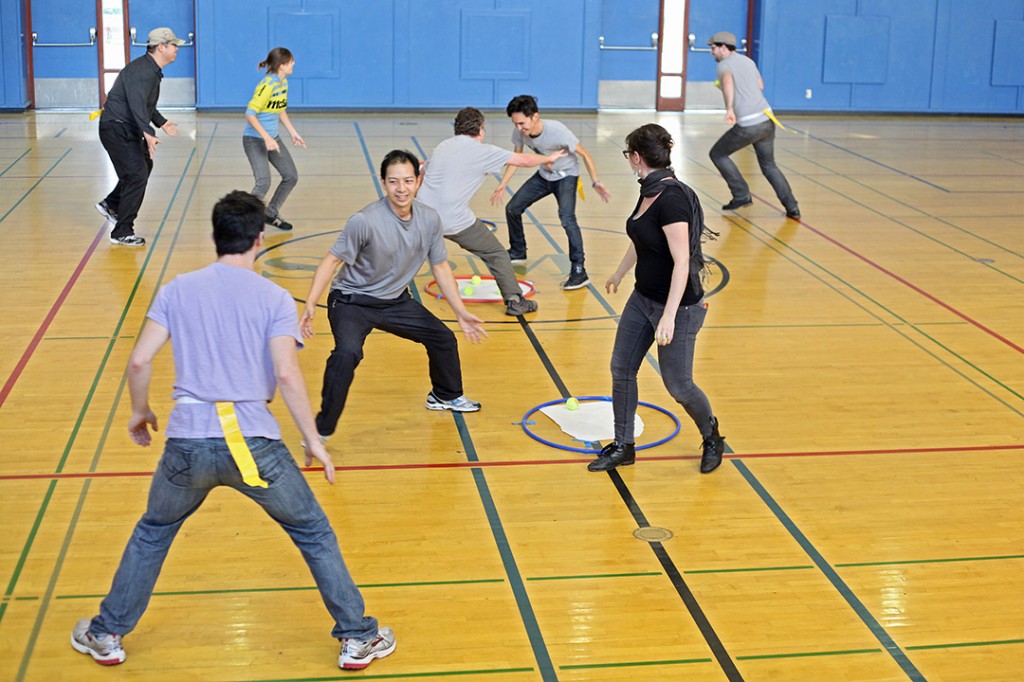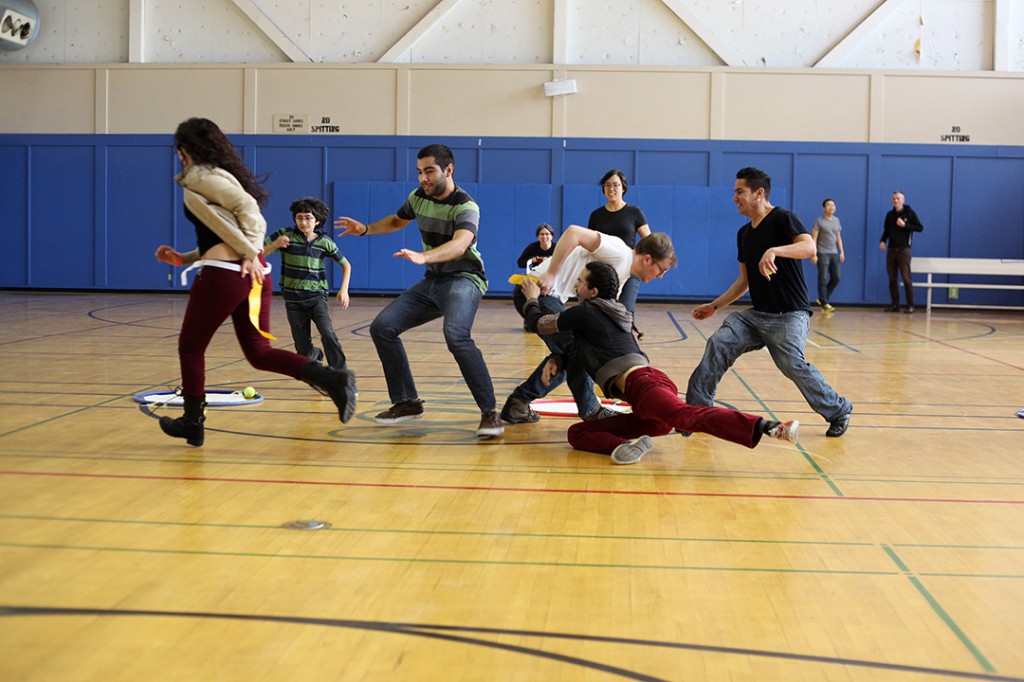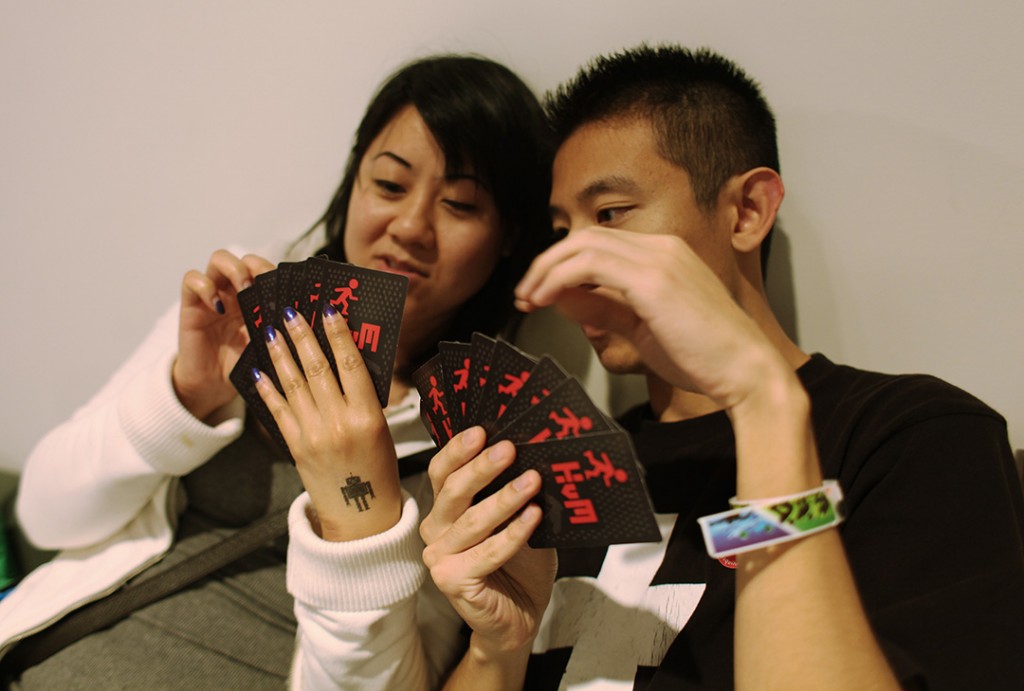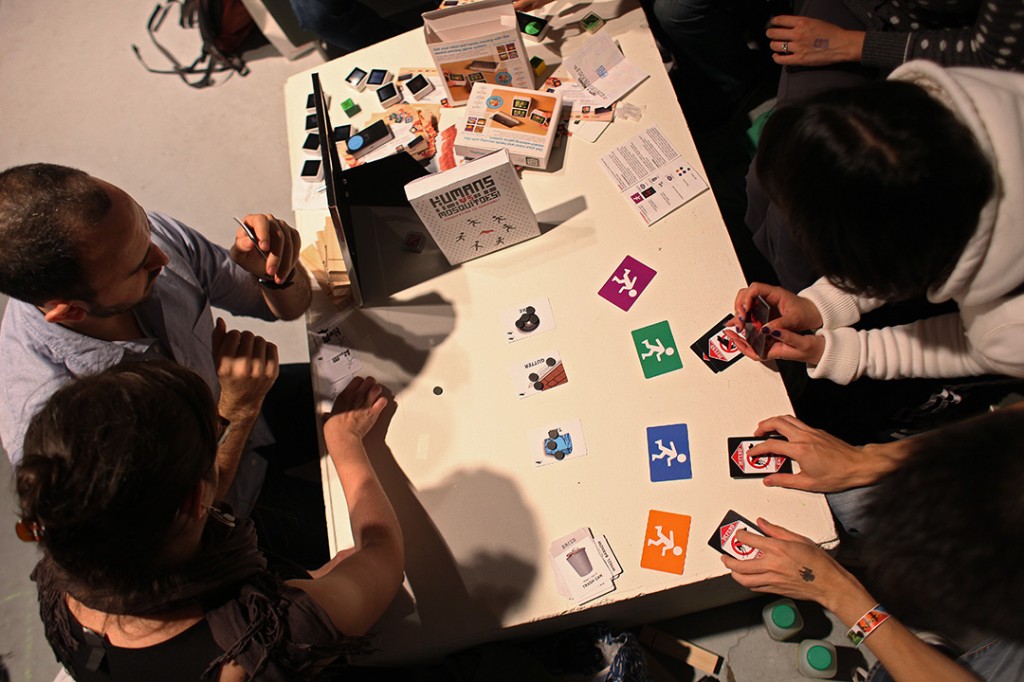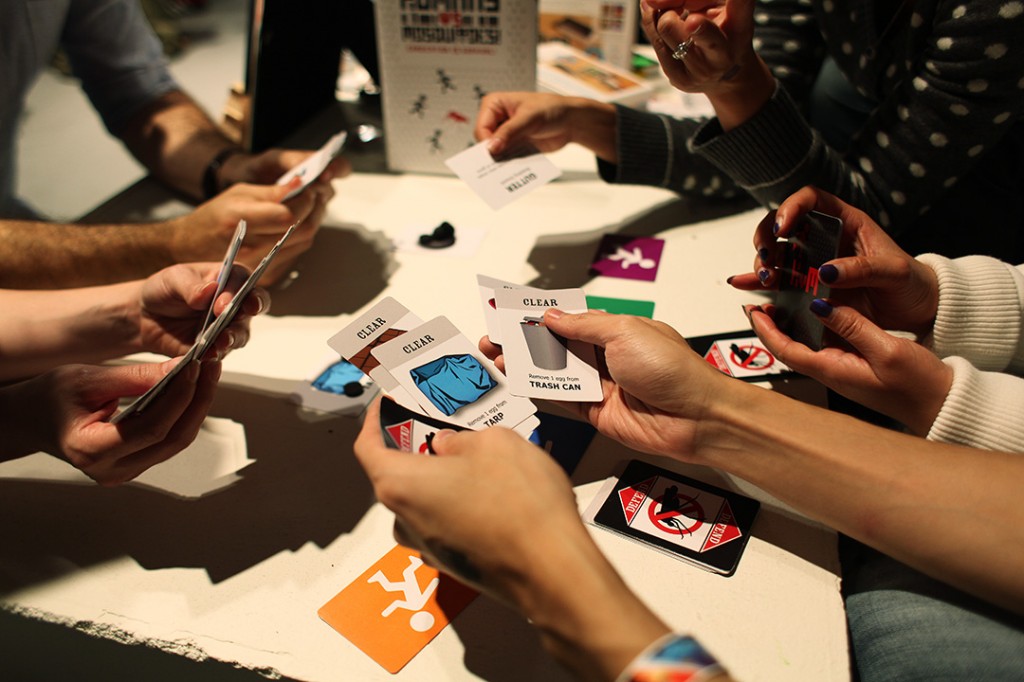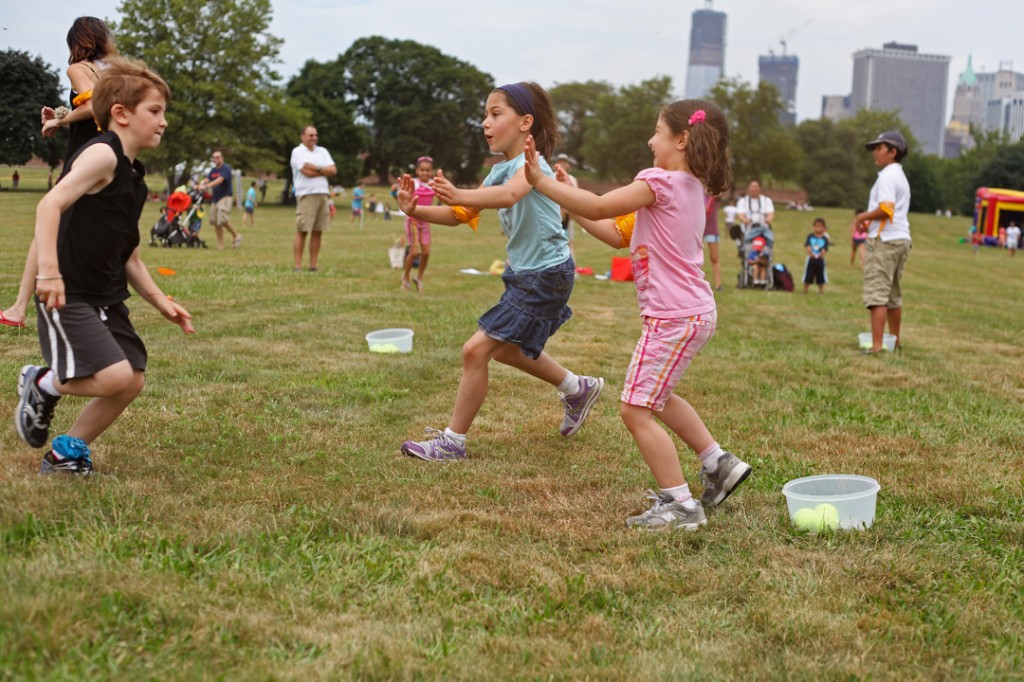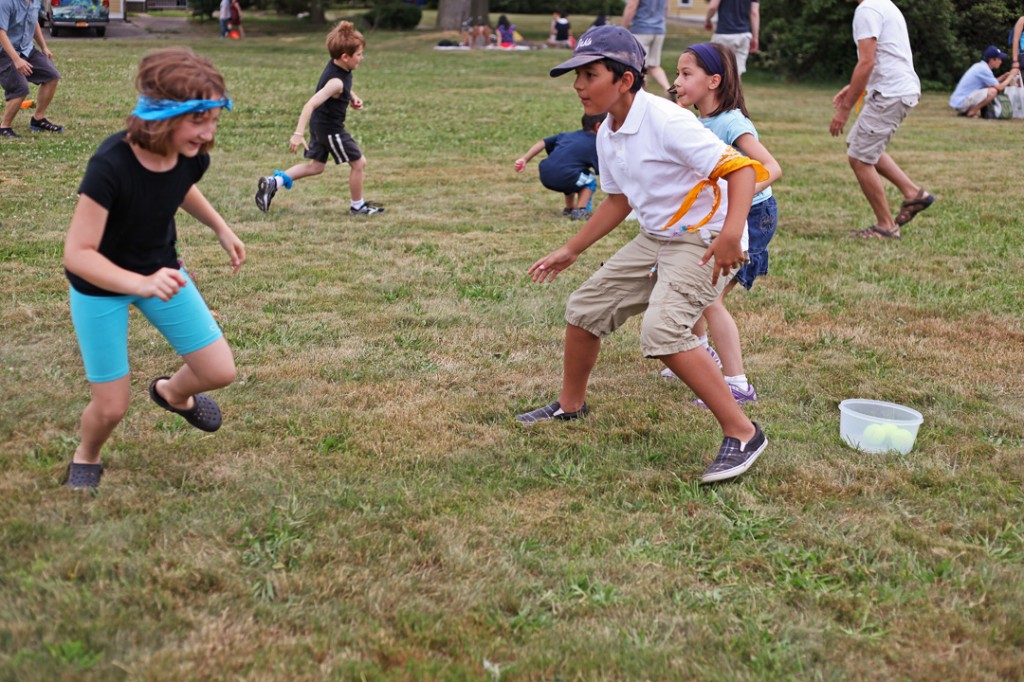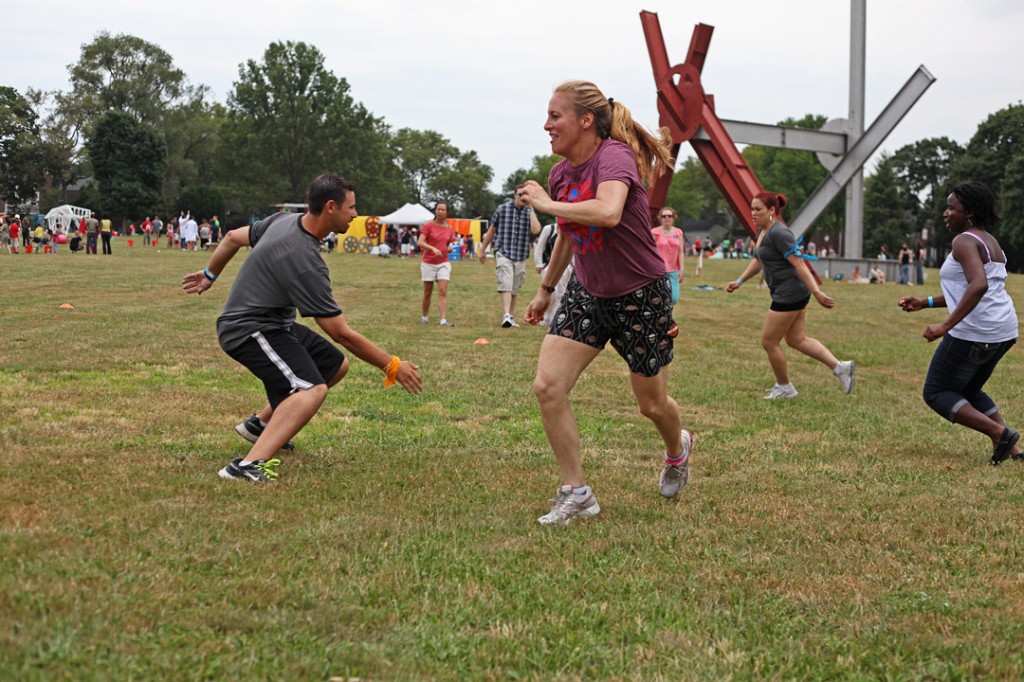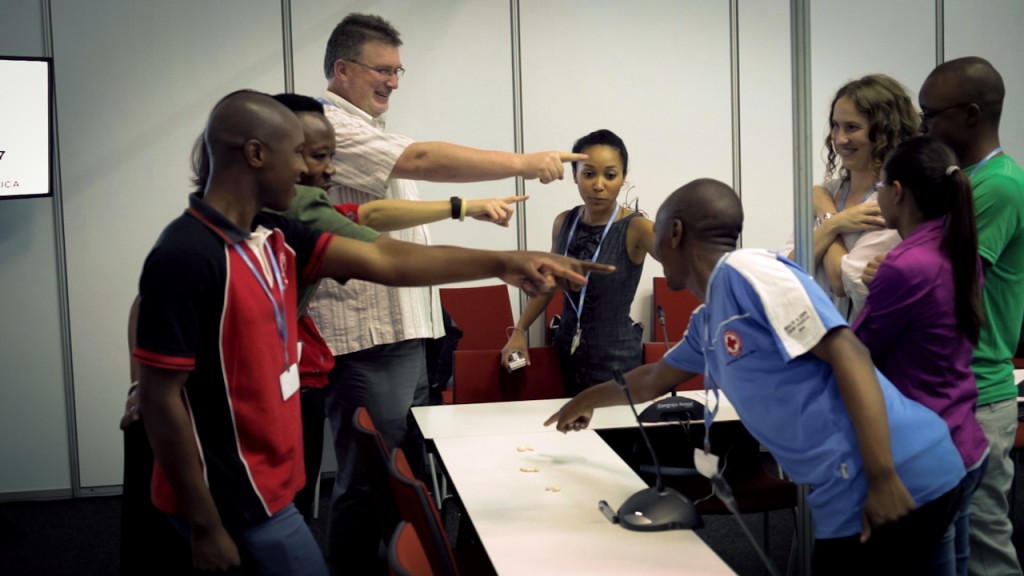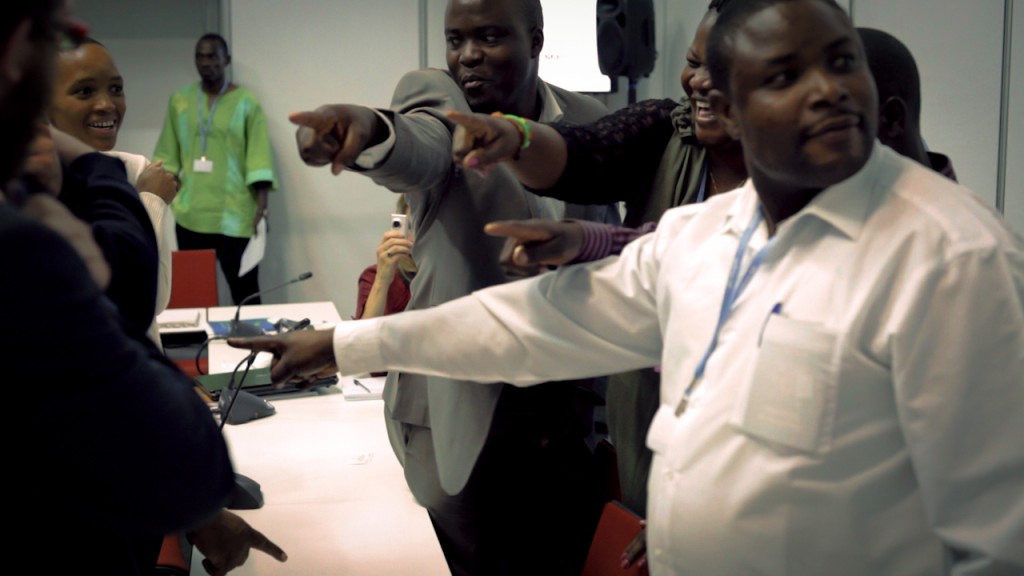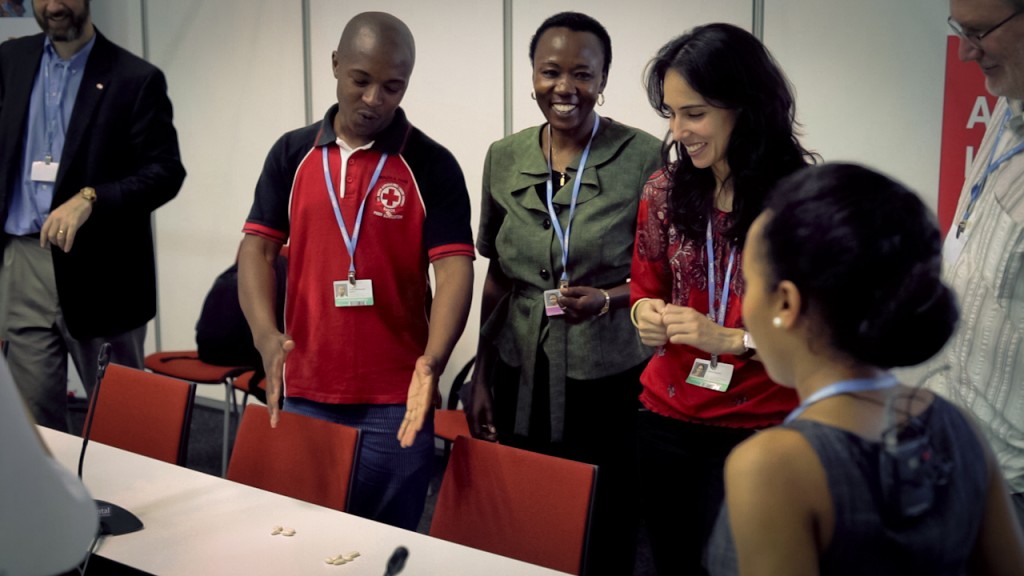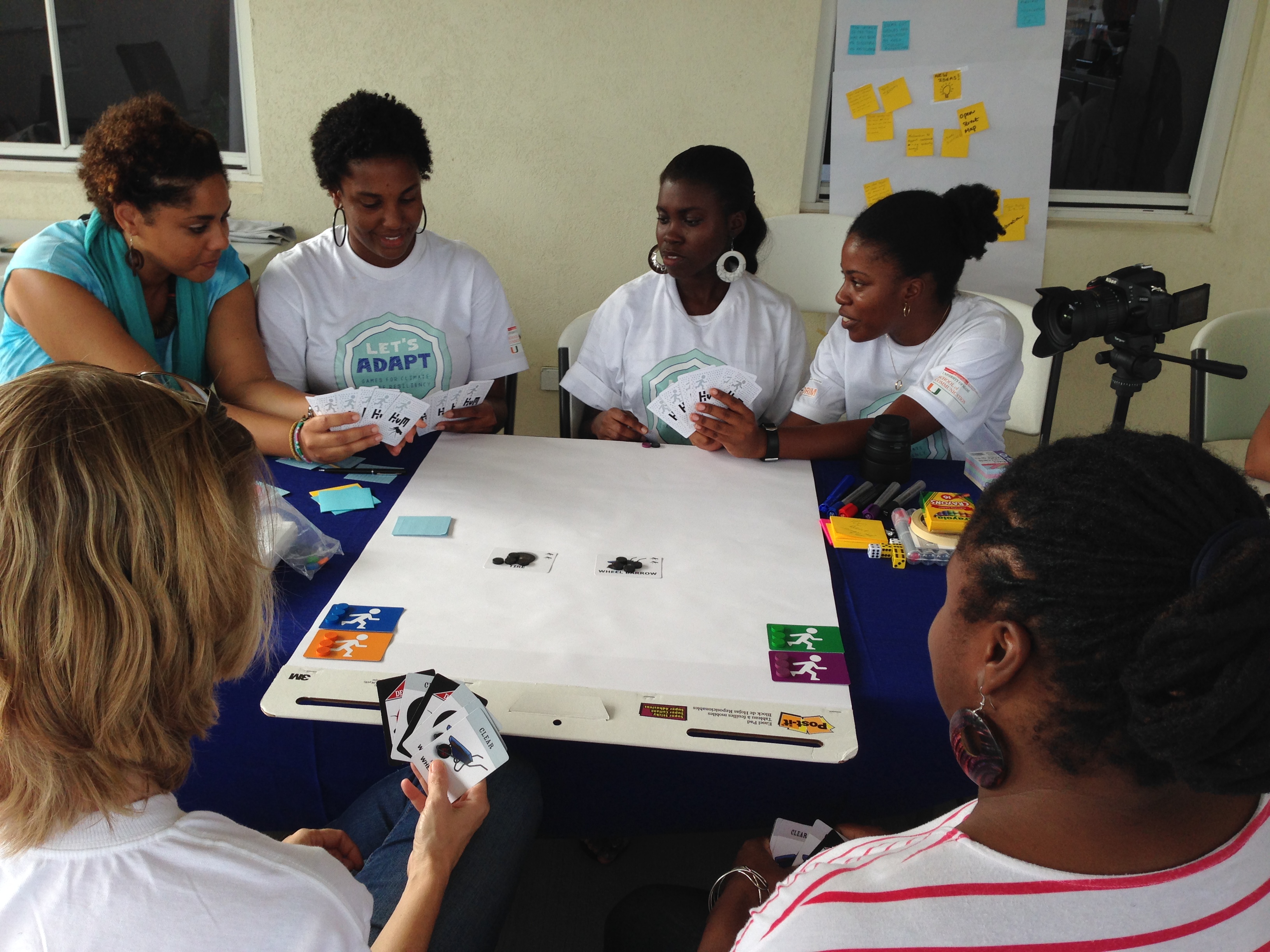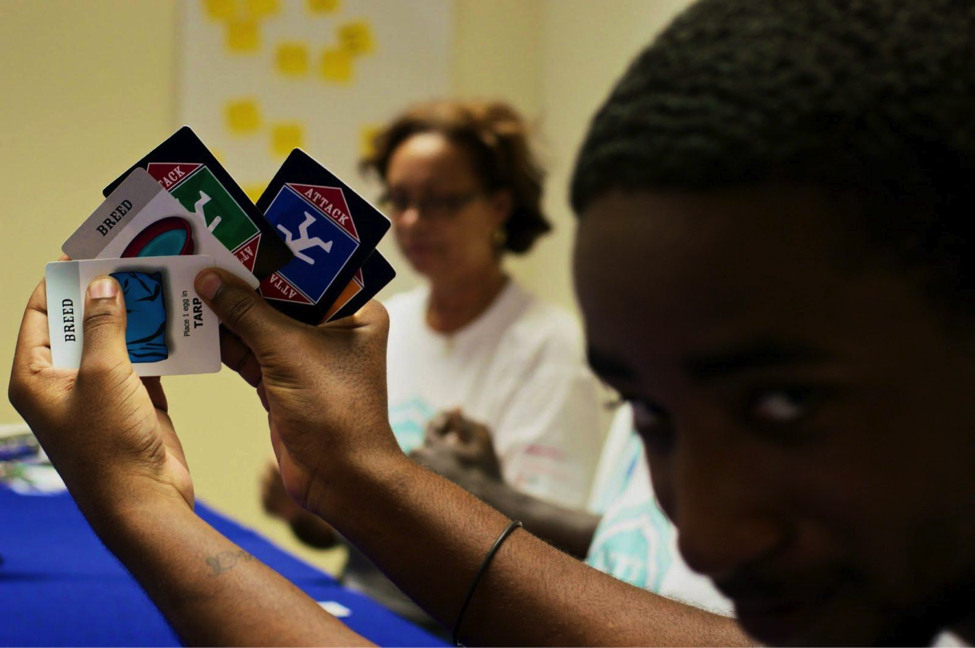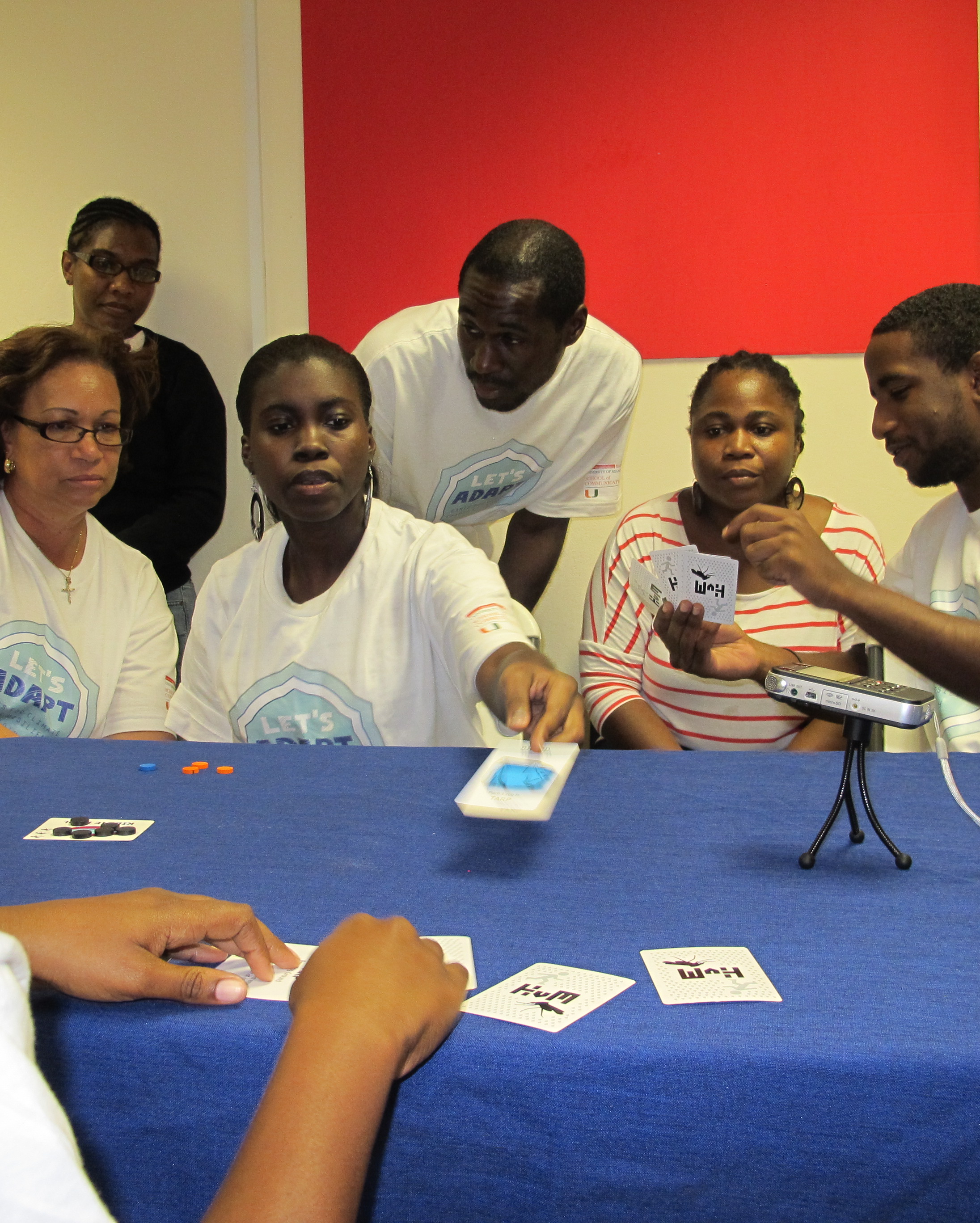Humans vs. Mosquitoes was originally developed in Fall 2011 by a team of graduate students and faculty at Yale University and Parsons The New School for Design for the Red Cross Red Crescent to use in the field to educate children about vector borne diseases and climate change. Playing the game allows children and policy makers alike to understand and engage on an emotional level with complex and abstract concepts of climate change and disease transmission. The game has been played all over the world including in South Africa at COP17, Kenya, Vietnam, Barbados, and the U.S. There is now a field version, a gesture-based tabletop version, and card version of the game.
Buy NowWorldwide, over 2.5 billion people are at risk of dengue. It is estimated that between 50 to 100 million cases of dengue fever and 250,000 to 500,000 cases of dengue hemorrhagic fever occur each year. Dengue is found in tropical and subtropical climates, in urban and semi-urban areas. It is found in over 100 countries. It is a virus spread by infected female mosquitoes (Aedes aegypti). There are four different viruses that cause dengue. After an infection, a person will develop lifelong immunity to that specific virus and transient immunity to the other three viruses.
There is no vaccine, cure, or specific treatment for dengue fever. However, prevention remains the only effective strategy to combat dengue. Dengue can be prevented through the control of the mosquito population with biological, chemical, and environmental methods. The Red Cross Red Crescent emphasizes dengue interventions should focus on the importance of cleaning breeding grounds more than using insecticides. Humans vs. Mosquitoes highlights the importance of prevention especially clearing breeding grounds.
Climate change will influence the transmission of dengue. Climate change fluctuations such as rain, warmer weather, and water shortages will all increase the prevalence of this disease. The Red Cross Red Crescent is one of the humanitarian agencies that are actively responding to the health care impacts of climate change by organizing education and cleaning campaigns to reduce the spread of dengue in countries such as Peru, Bolivia, and Paraguay. Climate change will place a greater burden on humanitarian agencies responding to dengue epidemics and they will require increased support to reach the most vulnerable populations worldwide.
